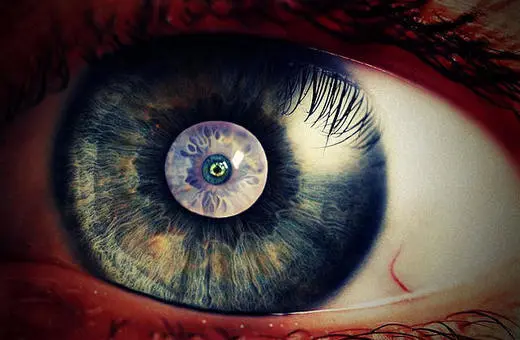Not only does panpsychism have questionable value as a philosophical hypothesis; not only is it flat-out refuted by empirical science; but even the very intuitions that motivate panpsychists turn out to be based on unexamined assumptions mistaken for facts, writes Bernardo Kastrup.
In a world increasingly confronted with the contradictions of physicalism, an alternative metaphysics has become popular in academia: panpsychism. Many different theories go by this term, but most people associate it with what is technically called ‘constitutive micropsychism’: the notion that elementary subatomic particles (henceforth simply ‘particles’), in addition to physical properties such as mass, charge and momentum, also have fundamental experiential properties. In other words, the hypothesis is that there is something it is like to be an electron, or a quark, and that no explanation is required for their consciousness because the latter is irreducible. According to constitutive micropsychism (henceforth simply ‘panpsychism’), the experiential properties of the particles constituting our brain somehow combine to give rise to higher-level human consciousness.
The appeal of panpsychism is that, while preserving the physicalist notions that (a) matter has standalone existence and (b) material arrangements are responsible for human-level consciousness, it avoids the famous ‘hard problem’ by making lower-level consciousness fundamental. Notice, however, that instead of enhancing the explanatory power of physicalism, this merely avoids the need for an explanation by throwing one more element—namely, low-level consciousness—into the reduction base, while removing nothing from it. It can thus be argued that panpsychism is as arbitrary as it is unhelpful, for it would be trivial to ‘solve’ every metaphysical problem simply by declaring every aspect of nature to be fundamental.
Another philosophical shortcoming of panpsychism is that there is no explicit, coherent account—not even in principle—of how two or more fundamentally distinct subjects of experience can combine to form a higher-level one. How can the little subjectivities of the myriad particles constituting your brain combine to give rise to you as a conscious subject? After all, your neurons don’t even touch one another, their communication is taking place through neurotransmitter molecules that drift across the gaps between them. As a matter of fact, a compelling case has been made that the combination of otherwise separate fields of subjectivity is an incoherent concept; as much a hand-waving appeal to magic as attempts to solve the hard problem.
___
Physically speaking, panpsychism simply cannot be true.
___
 SUGGESTED READING
Consciousness Cannot Have Evolved
By Bernardo Kastrup
The philosophical shortcomings of panpsychism, however, are rendered redundant by a simple scientific fact: panpsychism contradicts known physics and is, therefore, demonstrably false. Indeed, the foundational premise of panpsychism is that particles are entities with discrete spatial boundaries, like little marbles localised in space. This is supposedly the reason why the little marbles inside your head combine to form your consciousness, while the little marbles inside my head, in a different spatial location, combine to form my consciousness, separate from yours. The spatial boundaries of our respective marbles render your experiential field disjoint from mine, thereby preventing us from accessing the contents of each other’s minds—or so the story goes.
SUGGESTED READING
Consciousness Cannot Have Evolved
By Bernardo Kastrup
The philosophical shortcomings of panpsychism, however, are rendered redundant by a simple scientific fact: panpsychism contradicts known physics and is, therefore, demonstrably false. Indeed, the foundational premise of panpsychism is that particles are entities with discrete spatial boundaries, like little marbles localised in space. This is supposedly the reason why the little marbles inside your head combine to form your consciousness, while the little marbles inside my head, in a different spatial location, combine to form my consciousness, separate from yours. The spatial boundaries of our respective marbles render your experiential field disjoint from mine, thereby preventing us from accessing the contents of each other’s minds—or so the story goes.





















Join the conversation